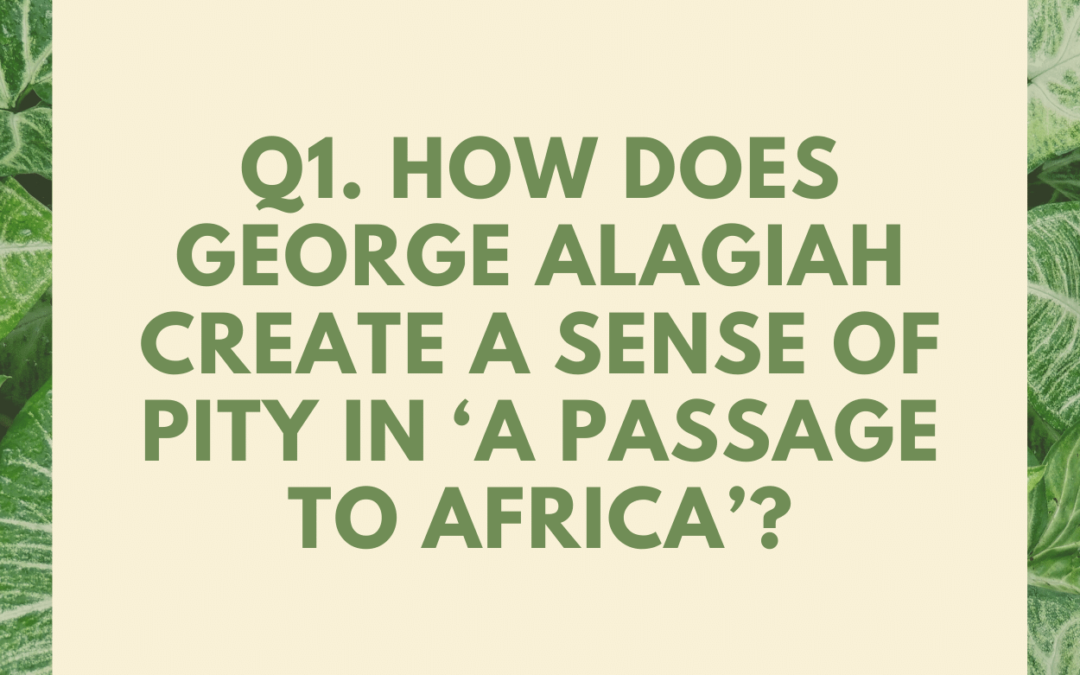Edexcel English IGCSE: A Passage to Africa by George Alagiah
Q1. How does George Alagiah create a sense of pity in ‘A Passage to Africa’?
In your answer, you should write about:
- the descriptions of the people he sees;
- the writer’s feelings;
- the significance of the man’s smile
- the use of language techniques.
Refer closely to the poem in your answer. You may use brief quotations.
Edexcel English IGCSE Model Essay by an Expert
In ‘A Passage to Africa’, Alagiah evokes sympathy in the reader as he describes the terrible situation of the people he sees in war-torn Somalia. The man’s smile reminds Alagiah and the reader of the humanity that we share with these people.
The passage describes with great pathos the plight of the Somalians, in one particularly affected village, Gufgaduud. The passage begins with a brief description of “a thousand hungry, scared and betrayed faces”. The triple adjective structure quickly informs the reader of the many struggles that the Somalians have faced, and the large number shows that the few people described in this passage are representative of a large population of equally affected people. One particularly pitiful scene in the passage is the death of Habiba. The sentence, “Habiba had died”, is blunt and brief, reflecting the speed of her departure and the finality of the event. The triple structures in “no rage, no whimpering, just a passing away” and “simple, frictionless, motionless deliverance” shows the writer’s surprise at how silent and effortless the death was, creating a sense of sadness and poignancy. That the death of a ten-year-old can be so unremarkable is unthinkable to the reader.
Alagiah is open in his reaction of revulsion towards the scenes that he witnesses, inducing a complex mixture of disgust and pity in the reader. The use of graphic adjectives in the description of the old woman creates a grotesque image: “decaying flesh”, “festering wound”, “shattered leg”, “putrid air” and “struggling breath”. Similarly, the use of the senses of smell and touch in the description of the feeding centre makes the reader empathise with Alagiah’s disgust: “smell the excretion of fluids” and “held the clammy palm”. The alliterative ‘m’ sound in the latter phrase encourages the reader to linger on this sensation, contributing to their disgust. Of course, this disgust is combined with sympathy, as the reader pities the people who have to survive in such circumstances.
Although the reader pities the people because of Alagiah’s graphic descriptions of their plight, there is a sense of distance between “us and them”. The man’s smile of embarrassment encourages both Alagiah and the reader to reflect on the humanity that unites the rich and poor world. The use of opposites in Alagiah’s explanation of this experience highlights the contrasts between the two men’s lives: “me and him, between us and them, between the rich world and the poor world”; the man is “weakened” and “ground down”, and Alagiah is “strong and confident”. The man’s embarrassed smile cuts across these differences, appealing to a sense of common humanity.
For Alagiah, the experience with the smiling man goes “beyond pity”. It reminds the reader that the people experiencing these atrocities are humans like us.



